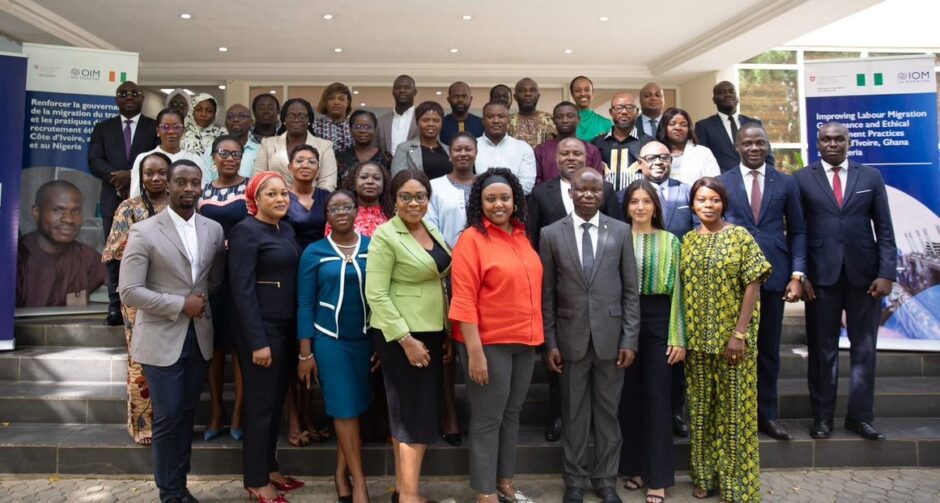GEA calls for Balanced Migration Frameworks at the Regional Workshop on Labour Migration Governance and Ethical Recruitment
The Ghana Employers’ Association (GEA) has reinforced its commitment to ethical labour migration and sustainable recruitment practices at the recently concluded Regional Training on Labour Migration Governance and Ethical Recruitment, held at Niger State in Nigeria. The event, facilitated by the International Organization for Migration (IOM) and supported by the Swiss Development Cooperation, brought together representatives from Côte d’Ivoire, Ghana, and Nigeria.
The three-day workshop explored critical themes such as labour migration governance, gender-responsive migration policies, and the importance of ethical recruitment to ensure the protection and empowerment of migrant workers. The training aimed to strengthen national and regional frameworks in line with the Global Compact for Migration objectives and the ECOWAS Protocol on the Free Movement of Persons within the sub-region.
Employer-Centric Discussions: A Call for Fairness in Migration Policies
From the employers’ perspective, GEA highlighted several key issues:
- Balancing Employer and Worker Needs: the need for a pragmatic approach that addresses both business competitiveness and the protection of migrant workers’ rights. The Association emphasized the need to foster a migration framework that aligns economic demands with humane recruitment standards.
- Ethical Recruitment as a Pillar of Decent Work: As part of its efforts to champion ethical recruitment practices, and underscore the value of transparency and fair contracts, GEA called for strengthened regulation of private employment agencies to curb exploitative practices.
- Inter-State Cooperation: The workshop underscored the importance of bilateral agreements to facilitate labour mobility. It was concluded that Bilateral Labour Agreements must be able to protect workers’ rights while addressing the skilled labour needs of host countries.
- Gender and Migration: the gendered dimensions of migration were also acknowledged, particularly the vulnerabilities faced by women in domestic and care sectors and the need for gender-responsive migration policies to safeguard migrant workers’ welfare.
Key Outcomes for Employers and the Region
- Enhanced Collaboration: The workshop fostered a stronger partnership between governments, private sectors, and international organizations to combat unethical recruitment practices and promote decent work.
- Capacity Development: GEA acquired actionable insights into leveraging ethical recruitment tools provided by IOM to implement fair practices.
- Policy Alignment: GEA is committed to aligning its advocacy with the workshop’s outcomes, particularly in pushing for robust policies integrating private sector inputs into labour migration governance frameworks.
Moving Forward
The GEA reiterates its dedication to advancing the agenda of ethical labour migration through continued collaboration with national and international stakeholders. As a key social partner, the Association aims to ensure that migration policies uphold workers’ rights and address enterprises’ productivity and economic needs.

